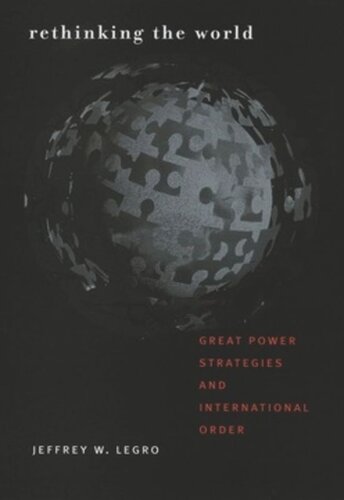

Most ebook files are in PDF format, so you can easily read them using various software such as Foxit Reader or directly on the Google Chrome browser.
Some ebook files are released by publishers in other formats such as .awz, .mobi, .epub, .fb2, etc. You may need to install specific software to read these formats on mobile/PC, such as Calibre.
Please read the tutorial at this link: https://ebookbell.com/faq
We offer FREE conversion to the popular formats you request; however, this may take some time. Therefore, right after payment, please email us, and we will try to provide the service as quickly as possible.
For some exceptional file formats or broken links (if any), please refrain from opening any disputes. Instead, email us first, and we will try to assist within a maximum of 6 hours.
EbookBell Team

4.3
78 reviewsStunning shifts in the worldviews of states mark the modern history of international affairs: how do societies think about—and rethink—international order and security? Japan's "opening," German conquest, American internationalism, Maoist independence, and Gorbachev's "new thinking" molded international conflict and cooperation in their eras. How do we explain such momentous changes in foreign policy—and in other cases their equally surprising absence?The nature of strategic ideas, Jeffrey W. Legro argues, played a critical and overlooked role in these transformations. Big changes in foreign policies are rare because it is difficult for individuals to overcome the inertia of entrenched national mentalities. Doing so depends on a particular nexus of policy expectations, national experience, and ready replacement ideas. In a sweeping comparative history, Legro explores the sources of strategy in the United States and Germany before and after the world wars, in Tokugawa Japan, and in the Soviet Union. He charts the likely future of American primacy and a rising China in the coming century. Rethinking the World tells us when and why we can expect changes in the way states think about the world, why some ideas win out over others, and why some leaders succeed while others fail in redirecting grand strategy.